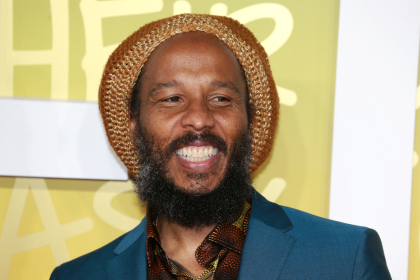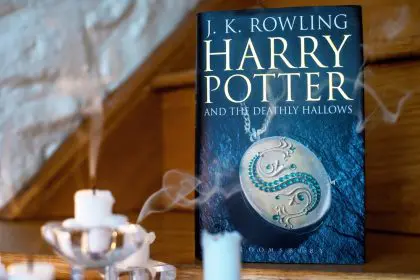
What inspired you to write your first book?
My first book, Looking for Sweet Love, is the precursor to my current book, Black Coffee. A setup, purposely done, to show that there’s always two sides to every story. With that being said, I wrote Looking for Sweet Love—a story of six women, the Love Forum Divas, who blow up the Dallas radio airwaves with their sassy discussions about life, love, and relationships—from the female point of view. And in the sequel, Black Coffee, I continued the storyline, again purposefully, from the male point of view.
Do you have a specific writing style?
Hmm, good question. Well, a reader wrote me and said that my debut novel, Looking for Sweet Love, was like Waiting to Exhale on crack, in a good way. You know I cringed when I read that, right? But, after some thought, I could relate to what they were saying. I write in a real and raw kind of way—unrestrained—the way you would talk to your best male friend, or best female friend in those private conversations. To tell you the truth, I guess I’m so engrossed in being politically correct on my day job that correctness just escapes me in my writing. I guess I consider my readers as my male/female friends.
What books have most impacted your life specifically or your life as an author?
I get asked this question in a lot of shapes, forms and styles. And I know you’re looking for author influences. But to tell you the truth, I wasn’t influenced by the James Baldwins, Zora Neale Hurstons or Toni Morrisons of the world. My influencers were the old folks from back in the day; especially my grandmother, who was a great storyteller.
I can remember her throwing card parties – Mavis Staples, Aretha Franklin, Betty Wright playing in the background – and her and her girlfriends dishing out the dirt and talking about what’s happened in and around town—you quietly listening in the other room, of course and wondering how all of this could be. But as you grow older, and experience life yourself, you eventually figure it out. And although times have changed, people are still dealing with the same issues as they did back in the day. The names, stories and backdrops are just different.

What books are you currently reading? Why this author?
I just finished reading K’wan’s Animal I and II. Aside from him being a great storyteller, his “You know a sequel is coming, right?” setups are the best; they leave you waiting for the next installment. Plus, I’ve set a goal for myself to read as many author’s works, from different genres and backgrounds, as time permits.
What new authors have piqued your interest? If you had to do it all over again, would you change anything about your latest work?
I read the comments from readers for Black Coffee either directly sent to me, or within the posted reviews and there was a recurring theme: “Wish we could’ve heard more of Michael’s voice.” With this, I agree, and would have provided more of a major role for his character than provided.
Is there anything you find particularly challenging about writing or coming up with a concept for your book? Coming up with a concept?
No. I have a hundred stories floating around in my head: drama, romance, even horror. Writing is a different story, though. Narration has always been my Achilles Heel. I have to continually work at, and fine tune, the narration parts of my books; but writing dialogue comes easy for me.
What was the hardest part of completing this project?
For me and I guess for any artist marketing is the greatest challenge. Attracting readers takes time; without the proper skill sets and resources at your fingertips, letting the world know that you (and your work) exists can be quite the challenge.
What advice would you give other writers?
I’ve given a lot of answers to this question, but the advice I keep coming back to aside from the business part of writing is: Stay true to yourself. Don’t let anything or anyone influence your “style” of writing. You were given this “gift” for a reason.
Describe the process in getting published.
There’s “traditional” publishing and self-publishing. Most writers, today, are taking the self-publishing route as did I. The three main components for me are:
1. The Book
a. Making sure I have a story that I want to write about that readers will enjoy reading (product).
b. Make sure the book is edited, formatted for print and/or eBook, and it has the appropriate ISBNs and copyright information (quality assurance).
c. Working with graphic designers to come up with a “stand out” book cover (packaging).
2. Distribution/Sales
a. Print (Bookstore retailers)
b. eBook (eBook retailers; Amazon, Barnes & Noble, etc.)
3. Marketing
a. Social Media
b. Book Reviews
c. eZines
d. Website
e. Book Fairs
f. Other
For a successful marketing campaign, Troy Johnson with AALBC.com indicated that one must possess two of the following three:
a. Money
b. A good product
c. Notoriety (either yourself or someone else)
This appears to hold some truth.
What were the literary, psychological and/or logistical challenges in bringing your work to life?
Writing is the easy part. The business side is the challenge and do note that there will be hiccups. Even the most savvy business person will, at some point, have issues. I’ve had to coordinate with, hire, or deal with editors, graphic designers, lawyers on numerous issues, the IRS, PR/Marketing firms, book and eBook distributors, copyright departments for Music Publishing Houses … and the list goes on, and on, and on. But once your work whether your first book or one of many is out there, it’s the best feeling you’ll ever have.
Everyone’s process for writing is different. Explain yours.
I’m an outliner. I outline the storyline by chapter and modify the outline as I write. As I progress through the manuscript, I know exactly at what point I need to provide a twist, plot point change, culmination, and/or the eventual climax.
What are five of your favorite books and why?
Well, I started reading for pleasure late in life. Black Boy, by Richard Wright, stands out as a favorite from all the books I’ve read thus far—I definitely related to his struggles. Although published in 1945, it can, to some extent, play out as a modern day tale. Black Boy is Wright’s autobiographical account of a black male growing up in the 1920’s south rural Mississippi and Memphis, Tennessee. Encountering great obstacles—poverty, racism, hunger, homelessness, and the cruel and unjust reality of the times under the Jim Crow laws—Wright struggles with doing what’s right, versus surviving, and tries to figure out where he fits into life; eventually finding his way or fit in Chicago. It’s a book in which every young, black male should be challenged to read.
Please provide three “good to know” fact about you. Be creative. Tell us about your first job or the inspiration behind your writing.
Wow. This is a first. The three which come to mind are:
1) How did my writing journey begin? Well, I just so happened to hear a voice on the radio (doing psychic readings for the station’s callers) and said, “hey, why not.” When I scheduled my appointment with the clairvoyant, she immediately asked, “Have you been working on something? Something for the last ten years? Writing?” I hesitantly answered and she told me, “Boy, you’re a writer and you need to write.” That was my confirmation, and exactly when (and how) my authorship journey began.
2) I’m a very quiet and private person. I guess that’s why I love to write. I can transform into whoever I want to be and in whatever environment I want to dwell within; living life vicariously through the characters and locations I create on the pages.
3) I’ve been an artist (so to speak) my whole life. My first “life” passion was Architecture (which is the foundation on how I make my living) and now, that first passion is being superseded by writing.
What is the mission you set out to accomplish with your voice in this book?
The inspiration behind Black Coffee was to provide a voice for black men (as there are always to sides to every story) and bring light to some of the plaguing social issues impacting men of color.
Everything that we had seen the abuser; heard about the DL brother; or were portrayed to be the non-committal man or womanizer; I flipped literally and said, “Look, we’re all human here. It’s a two-way street you know. Men get hurt; men get cheated on; men have not-so-great relationships. Let’s hear those stories too.”
Who are the authors you reread and why?
I can’t recall rereading a book. However, I will go back and study parts of a book if the author did something that grabbed my attention—had an incredible plot twist, described a place or person that was intriguing, etc.—which will make me think; Damn! That was pretty good. Let me go back and see how they did that.
A great book has what?
For me, I want the book to take me on a journey; developing characters and the storyline as it builds up page by page, character by character, chapter by chapter; leaving me wanting to turn each page to find out what’s happening next. So, give me interesting and engaging characters with their backstories, great dialogue and narration, and a plot that works its way up to several twist and turns, leading to an unforgettable climax.
You develop character and ideas by….
I love to people watch. You can tell a lot about a person by how they dress, their mannerisms, and how they speak; GREAT material for developing characters.
Where would you travel if you could to write you next book?
I’m a simple person. Put me in a place where I can people watch and get inspiration and I’m good.










